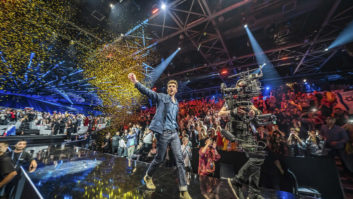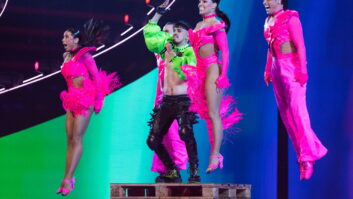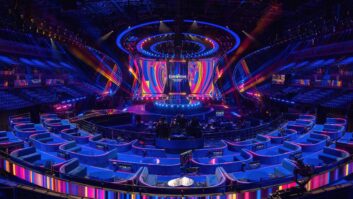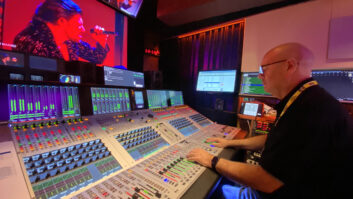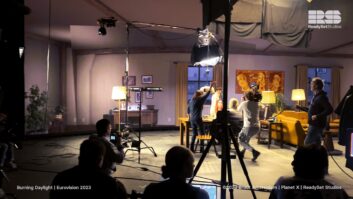Jon Ola Sand has been the European Broadcasting Union’s (EBU) supremo for the Eurovision Song Contest for the past 10 years, but is stepping down to return to NRK in Norway.
“I started my television career in 1980 working as a researcher and programme assistant for a music programme in Oslo,” says Sand. “I then moved into floor managing and took a course in multi-camera directing, working on music productions.”
In 1992 he left NRK to join the then newly-formed TV2 where he helped to build the reputation of the fledgling channel. Four years later he re-joined NRK as a producer and editor-in-chief for entertainment shows.
“After I produced the Eurovision Song Contest in Oslo in 2010, I was appointed as the executive overseer at the EBU. So, my background from being an assistant and researcher has led me to where I am today.”
He goes on, “Part of my job has been to oversee the preparation of the contest so that it can move across Europe to different broadcasters in different areas in different cultures. We are a relatively small team, but with special responsibilities for not only overseeing the production, but also the legal, finance and logistics of EBU events.”
Early start
“Because the public broadcaster that comes first in the contest becomes the host for the following year’s event, the very first meeting is shortly after the winner is announced on that night. Within a few weeks we will have further meetings where we provide budgetary considerations, provide an overview of the legal issues and discuss best practice. At that time, we also draw up a contract which defines the broadcaster’s roles and responsibilities – along with the EBU’s duties.”
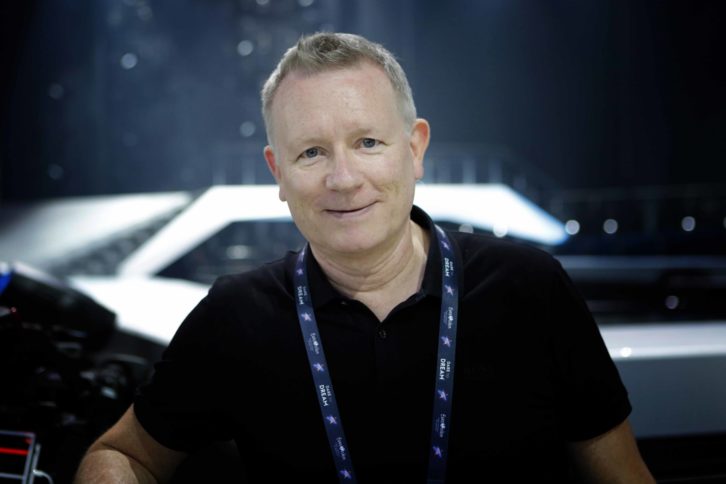
Having said that, Sand says that the host broadcaster does have a great deal of freedom to design their own production, with their own look and feel of the show. They will also come up with a tag line – this year’s was to be ‘Open Up’. Part of the EBU contribution is to help the broadcaster fulfil that narrative and ensure it comes across with true meaning.
Challenges
He says the most challenging aspect of the job centres on the fact that host broadcasters inevitably work in different ways to each other. “Some are very advanced and already produce huge TV shows, whereas others are more commissioning entities and there’s very little in-house experience of production.”
Sand has the final word in almost all aspects of the event. One important consideration is the venue. Obviously, it needs to be fit for purpose, not just in terms of size, but also with regards to security, storage, hospitality areas and so on.
“The OB provider is also key. In most European countries, the selection must go through the EU Tender process. But we have to specify certain criteria that need to be met – and that includes the use of CuePilot which we have been utilising for some years.”
Sand explains that each participating country must complete a ‘look and feel’ form for the act they are submitting. They must also send a video recording of the act that shows the key elements of the presentation. “Rehearsals can then start with stand-in artists so the directors can work out their shots, lighting directors can check their plans and so on. Once these rehearsals move into the arena, a recording of each act is made and sent to the participating country for comments. I then have to study any comments that come back, because if there are any complaints, I need to understand the reasons. It helps ensure all is well on the actual night.”
These preliminary performances and then followed nearer the time by full rehearsals with the actual artists.
For Sand the 2020 contest was to be his last in charge. “I am moving back to NRK to help it implement plans for a move to a new media centre in the next few years. We have to find a facility that will be home to 3000 people – and one that will help NRK to remain a strong public service broadcaster in the years to come.”
He concludes, “This is a fantastic opportunity for me.”
